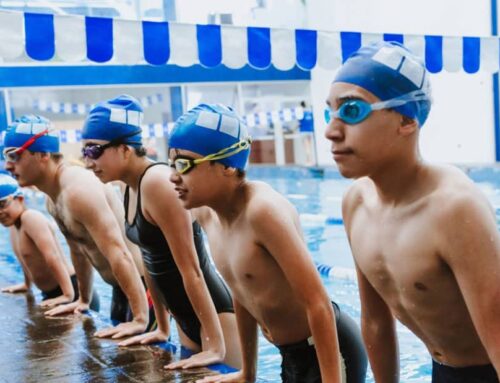Life Lessons From a Two-Sport Non-Scholarship College Athlete
Below is a sample chapter from my new book, Walked On: Life Lessons From a Two-Sport Non-Scholarship College Athlete. The book details the story of my career as a non-scholarship Division I college football and baseball player, plus as an undrafted free agent minor league baseball player. It begins and ends in Chicago, with plenty of stops along the way. While this is not a “glory days” memoir, there were plenty of lessons that helped and hurt me throughout my career–lessons that all athletes can benefit from. My hope is that Walked On inspires readers to stay focused on their goals, no matter where the journey leads them. To learn more, go to bkstrength.com/walked-on. Enjoy!
My journey to find athletic success was challenging. Keep in mind that “difficult” is personally defined; what is difficult for one may not be considered difficult for another. We all have to face and overcome our version of adversity. My journey as an athlete was not easy (please keep my struggle in perspective because plenty of people have had worse problems and harder situations than mine).
I am fortunate to come from a supportive family and grew up with excellent youth and high school coaches, teaching me great life lessons. But, once I got to college, none of that mattered. What I learned on the field in the first 18 years of my life was no longer relevant.
Before becoming a trainer, I was an athlete. I had big dreams in high school: I wanted to play Big Ten football and Major League Baseball. These were high-level aspirations, and the statistics work against most high school players achieving either of them.
According to scholarshipstats.com:
- 1 in 14 high school athletes will play a varsity college sport
- 1 in 54 will play an NCAA Division I sport
- 2 percent of high school athletes will earn a Division I athletic scholarship
- 2 percent of the high school athletes that earn Division I scholarships will play professionally
The math was against me. I knew it would be hard, but I was convinced that I could do it. While I would not have been able to articulate it at the time, I believed in myself. There was something deep inside my core that “wanted it more” than everyone else. As cliché as it sounds, I thought anything was possible if I had talent, worked hard, made sacrifices, and was willing to go through hell to get it. I accepted that suffering was a component of achievement, and I was ready to suffer. I did not expect it to be easy.
The journey was made all the more difficult without the validation of personal recognition. I did not receive many individual awards. As a high school athlete, I was All-Conference for football and baseball, All-Area for football and baseball, and played in an All-Star football game. But, unlike many pro athletes, I was not All-State, and I was not an All-American. I was not offered a Division I college football or baseball scholarship or drafted by an MLB team out of high school or college. The reality of my background is that I was a two-sport walk-on and an undrafted free agent.
Being a walk-on meant that no college football or college baseball program thought enough of my potential to pay for my education. Being an undrafted free agent told that no Major League Baseball organizations thought enough of my potential to draft me. I wore the walk-on and undrafted free agent designation like a chip on my shoulder — as a motivator. The odds are against walk-ons succeeding, as we are presumed to be less talented than our scholarship peers. Thus, there are fewer opportunities to show what we can do. Somehow, we must find a way to stand out. Being in the right place at the right time and ready to perform when called upon is important. Focusing on controllable actions, such as preparation, is a must. Practice is an equalizer, so being prepared is better than getting ready.
As an athlete with an English degree, I had zero interest in writing about my sports career, but my attitude about it has changed as I’ve gotten older. There are very few people that know the in-depth details of this story. As a trainer, I have worked with athletes and been disgusted after hearing about their college coaches’ experiences, which sounded very similar to my experiences with college coaches. After realizing that 2017 marked the 10th anniversary of my release from the Chicago White Sox organization, I felt I was removed enough from the game to offer my own insights.
Reading a book like this would have helped reinforce my belief that I was on the right path. Many sleepless nights were wondering if I would ever achieve the goals that I had set for myself. I hope that my persistence motivates someone else to keep fighting for what they want. Staying true to my core beliefs helped me navigate through the shit-storm that is college and professional sports.
Not every decision I made throughout this journey was correct. All athletes are at the mercy of other people’s opinions, and coaching actions forced my reactions. It is important to note that I am a happy person and too fulfilled regardless of my experiences. I have a great family, an inspired career, and a fantastic life. This book was written out of enlightenment and reflection to connect with future athletic audiences. Walked On is an attempt to explain some unfortunate realities of big-time college and professional sports; a demonstration to current and future athletes that our inner strength can determine success. This book has many characters, including family, teammates, and coaches. They all have important roles in the story; some as heroes, others as villains — some as both.
Let it be known that I hold no grudges and wish the heroes and villains a lifetime of success and prosperity.
This writing aims to use my own journey to motivate others to find inspiration through failure and setbacks. I am well aware that if I had an easier athletic path (for example, if I had been All-State if I had received a scholarship, if I had been drafted), my journey would have been entirely different.
Either way, at a pivotal point, we are all tested on how bad we want something. During a life-defining moment, we must decide that our grit outweighs any obstacle. We must believe that our ability to fight is greater than our instinct to run, that our will can overcome our challenge. I hope this book provides numerous examples of times it would have been easy to quit, but a commitment to achieving a life-long goal and the resiliency to see it through proved to be more important. I refused to let any single opinion define me; the only opinion that mattered was mine.
Special thanks to my family for their support. They lived through each chapter and always picked up the phone when I called.
RECOMMENDED FOR YOU
MOST POPULAR
Life Lessons From a Two-Sport Non-Scholarship College Athlete
Below is a sample chapter from my new book, Walked On: Life Lessons From a Two-Sport Non-Scholarship College Athlete. The book details the story of my career as a non-scholarship Division I college football and baseball player, plus as an undrafted free agent minor league baseball player. It begins and ends in Chicago, with plenty of stops along the way. While this is not a “glory days” memoir, there were plenty of lessons that helped and hurt me throughout my career–lessons that all athletes can benefit from. My hope is that Walked On inspires readers to stay focused on their goals, no matter where the journey leads them. To learn more, go to bkstrength.com/walked-on. Enjoy!
My journey to find athletic success was challenging. Keep in mind that “difficult” is personally defined; what is difficult for one may not be considered difficult for another. We all have to face and overcome our version of adversity. My journey as an athlete was not easy (please keep my struggle in perspective because plenty of people have had worse problems and harder situations than mine).
I am fortunate to come from a supportive family and grew up with excellent youth and high school coaches, teaching me great life lessons. But, once I got to college, none of that mattered. What I learned on the field in the first 18 years of my life was no longer relevant.
Before becoming a trainer, I was an athlete. I had big dreams in high school: I wanted to play Big Ten football and Major League Baseball. These were high-level aspirations, and the statistics work against most high school players achieving either of them.
According to scholarshipstats.com:
- 1 in 14 high school athletes will play a varsity college sport
- 1 in 54 will play an NCAA Division I sport
- 2 percent of high school athletes will earn a Division I athletic scholarship
- 2 percent of the high school athletes that earn Division I scholarships will play professionally
The math was against me. I knew it would be hard, but I was convinced that I could do it. While I would not have been able to articulate it at the time, I believed in myself. There was something deep inside my core that “wanted it more” than everyone else. As cliché as it sounds, I thought anything was possible if I had talent, worked hard, made sacrifices, and was willing to go through hell to get it. I accepted that suffering was a component of achievement, and I was ready to suffer. I did not expect it to be easy.
The journey was made all the more difficult without the validation of personal recognition. I did not receive many individual awards. As a high school athlete, I was All-Conference for football and baseball, All-Area for football and baseball, and played in an All-Star football game. But, unlike many pro athletes, I was not All-State, and I was not an All-American. I was not offered a Division I college football or baseball scholarship or drafted by an MLB team out of high school or college. The reality of my background is that I was a two-sport walk-on and an undrafted free agent.
Being a walk-on meant that no college football or college baseball program thought enough of my potential to pay for my education. Being an undrafted free agent told that no Major League Baseball organizations thought enough of my potential to draft me. I wore the walk-on and undrafted free agent designation like a chip on my shoulder — as a motivator. The odds are against walk-ons succeeding, as we are presumed to be less talented than our scholarship peers. Thus, there are fewer opportunities to show what we can do. Somehow, we must find a way to stand out. Being in the right place at the right time and ready to perform when called upon is important. Focusing on controllable actions, such as preparation, is a must. Practice is an equalizer, so being prepared is better than getting ready.
As an athlete with an English degree, I had zero interest in writing about my sports career, but my attitude about it has changed as I’ve gotten older. There are very few people that know the in-depth details of this story. As a trainer, I have worked with athletes and been disgusted after hearing about their college coaches’ experiences, which sounded very similar to my experiences with college coaches. After realizing that 2017 marked the 10th anniversary of my release from the Chicago White Sox organization, I felt I was removed enough from the game to offer my own insights.
Reading a book like this would have helped reinforce my belief that I was on the right path. Many sleepless nights were wondering if I would ever achieve the goals that I had set for myself. I hope that my persistence motivates someone else to keep fighting for what they want. Staying true to my core beliefs helped me navigate through the shit-storm that is college and professional sports.
Not every decision I made throughout this journey was correct. All athletes are at the mercy of other people’s opinions, and coaching actions forced my reactions. It is important to note that I am a happy person and too fulfilled regardless of my experiences. I have a great family, an inspired career, and a fantastic life. This book was written out of enlightenment and reflection to connect with future athletic audiences. Walked On is an attempt to explain some unfortunate realities of big-time college and professional sports; a demonstration to current and future athletes that our inner strength can determine success. This book has many characters, including family, teammates, and coaches. They all have important roles in the story; some as heroes, others as villains — some as both.
Let it be known that I hold no grudges and wish the heroes and villains a lifetime of success and prosperity.
This writing aims to use my own journey to motivate others to find inspiration through failure and setbacks. I am well aware that if I had an easier athletic path (for example, if I had been All-State if I had received a scholarship, if I had been drafted), my journey would have been entirely different.
Either way, at a pivotal point, we are all tested on how bad we want something. During a life-defining moment, we must decide that our grit outweighs any obstacle. We must believe that our ability to fight is greater than our instinct to run, that our will can overcome our challenge. I hope this book provides numerous examples of times it would have been easy to quit, but a commitment to achieving a life-long goal and the resiliency to see it through proved to be more important. I refused to let any single opinion define me; the only opinion that mattered was mine.
Special thanks to my family for their support. They lived through each chapter and always picked up the phone when I called.












